| 1 x afterRenderRawModule mod_tags_popular (Search) (46.4KB) (29.91%) | 49.20ms |
| 1 x afterRenderRawModule mod_articles_category (READ MORE...) (13.72KB) (22.2%) | 36.51ms |
| 1 x afterRenderComponent com_tags (2MB) (20.3%) | 33.39ms |
| 1 x afterInitialise (1.28MB) (7.15%) | 11.76ms |
| 1 x afterRender (379.76KB) (3.9%) | 6.42ms |
| 1 x afterRoute (840.02KB) (2.93%) | 4.82ms |
| 1 x beforeRenderRawModule mod_articles_category (READ MORE...) (423.86KB) (2.67%) | 4.39ms |
| 1 x beforeRenderRawModule mod_custom (Chronic fatigue tied Alan to his bed but Q10 capsules saved him:) (244.28KB) (1.23%) | 2.03ms |
| 1 x afterRenderRawModule mod_finder () (79.34KB) (0.98%) | 1.61ms |
| 1 x afterDispatch (65.45KB) (0.92%) | 1.51ms |
| 1 x afterRenderRawModule mod_languages (Sprogskift) (22.56KB) (0.91%) | 1.49ms |
| 1 x afterRenderRawModule mod_menu (Main Menu - English) (250.95KB) (0.83%) | 1.37ms |
| 1 x afterRenderRawModule mod_custom () (22.66KB) (0.51%) | 835μs |
| 1 x afterRenderRawModule mod_menu (Main Menu - English) (6.3KB) (0.45%) | 736μs |
| 1 x beforeRenderRawModule mod_menu (Main Menu - English) (29.14KB) (0.44%) | 729μs |
| 1 x afterRenderRawModule mod_languages (Sprogskift Mobil) (3.89KB) (0.41%) | 667μs |
| 1 x afterLoad (456.41KB) (0.36%) | 594μs |
| 1 x After Access::preloadComponents (all components) (103.05KB) (0.36%) | 591μs |
| 1 x afterRenderRawModule mod_finder () (6.29KB) (0.32%) | 527μs |
| 1 x beforeRenderComponent com_tags (21.09KB) (0.32%) | 522μs |
| 1 x afterRenderRawModule mod_menu (Are you getting enough vitamins and minerals?) (22.39KB) (0.28%) | 461μs |
| 1 x Before Access::preloadComponents (all components) (50.9KB) (0.25%) | 409μs |
| 1 x beforeRenderModule mod_articles_category (READ MORE...) (20.82KB) (0.2%) | 330μs |
| 1 x afterRenderRawModule mod_menu (Did you know.....) (25.52KB) (0.19%) | 305μs |
| 1 x afterRenderRawModule mod_menu (The key to increased well-being) (17.83KB) (0.15%) | 253μs |
| 1 x beforeRenderRawModule mod_custom () (8.66KB) (0.12%) | 191μs |
| 1 x afterRenderRawModule mod_custom (BOOST YOUR IMMUNE DEFENSE) (3.8KB) (0.1%) | 162μs |
| 1 x afterRenderRawModule mod_custom () (904B) (0.09%) | 145μs |
| 1 x beforeRenderRawModule mod_custom () (6.62KB) (0.09%) | 141μs |
| 1 x beforeRenderRawModule mod_menu (Main Menu - English) (5.07KB) (0.07%) | 121μs |
| 1 x afterRenderRawModule mod_custom () (896B) (0.06%) | 98μs |
| 1 x beforeRenderRawModule mod_custom () (688B) (0.05%) | 83μs |
| 1 x afterRenderModule mod_custom (Chronic fatigue tied Alan to his bed but Q10 capsules saved him:) (1.3KB) (0.04%) | 65μs |
| 1 x afterRenderModule mod_menu (Main Menu - English) (4.86KB) (0.03%) | 56μs |
| 1 x afterRenderModule mod_custom () (1.23KB) (0.03%) | 52μs |
| 1 x afterRenderRawModule mod_custom (Get additionel and more detailed knowledge ) (1.55KB) (0.03%) | 47μs |
| 1 x afterRenderModule mod_menu (Main Menu - English) (1.25KB) (0.03%) | 47μs |
| 1 x afterRenderModule mod_finder () (1.23KB) (0.03%) | 46μs |
| 1 x After Access::getAssetRules (id:8 name:com_content) (7.05KB) (0.03%) | 44μs |
| 1 x afterRenderModule mod_articles_category (READ MORE...) (1.25KB) (0.03%) | 44μs |
| 1 x beforeRenderRawModule mod_menu (Are you getting enough vitamins and minerals?) (2.5KB) (0.02%) | 41μs |
| 1 x afterRenderRawModule mod_custom (Chronic fatigue tied Alan to his bed but Q10 capsules saved him:) (1.06KB) (0.02%) | 40μs |
| 1 x afterRenderRawModule mod_custom (Cholesterol-lowering without side effects:) (1.06KB) (0.02%) | 37μs |
| 1 x afterRenderModule mod_languages (Sprogskift Mobil) (1.27KB) (0.02%) | 34μs |
| 1 x afterRenderModule mod_finder () (3.29KB) (0.02%) | 33μs |
| 1 x afterRenderModule mod_custom (Cholesterol-lowering without side effects:) (1.28KB) (0.02%) | 32μs |
| 1 x afterRenderRawModule mod_custom (Useful Links) (1.02KB) (0.02%) | 30μs |
| 1 x afterRenderModule mod_custom (Antiaging) (3.77KB) (0.02%) | 30μs |
| 1 x beforeRenderRawModule mod_custom (BOOST YOUR IMMUNE DEFENSE) (6.45KB) (0.02%) | 28μs |
| 1 x afterRenderModule mod_custom (BOOST YOUR IMMUNE DEFENSE) (1.28KB) (0.02%) | 26μs |
| 1 x beforeRenderRawModule mod_custom (Get additionel and more detailed knowledge ) (816B) (0.02%) | 25μs |
| 1 x afterRenderModule mod_custom () (2.43KB) (0.01%) | 24μs |
| 1 x afterRenderRawModule mod_custom (Overview of vitamins, minerals, and essential fatty acids) (960B) (0.01%) | 23μs |
| 1 x afterRenderModule mod_tags_popular (Search) (1.27KB) (0.01%) | 23μs |
| 1 x afterRenderModule mod_custom (Weight loss that works) (1.27KB) (0.01%) | 22μs |
| 1 x afterRenderModule mod_menu (Are you getting enough vitamins and minerals?) (1.3KB) (0.01%) | 22μs |
| 1 x afterRenderModule mod_custom () (2.71KB) (0.01%) | 22μs |
| 1 x afterRenderModule mod_custom (Get additionel and more detailed knowledge ) (1.3KB) (0.01%) | 22μs |
| 1 x afterRenderModule mod_custom (Q10 goes by many names) (1.27KB) (0.01%) | 21μs |
| 1 x afterRenderModule mod_custom (Overview of vitamins, minerals, and essential fatty acids) (1.31KB) (0.01%) | 21μs |
| 1 x afterRenderModule mod_custom (Check this before you buy a Q10 product) (1.28KB) (0.01%) | 21μs |
| 1 x afterRenderModule mod_custom (Are you taking supplements) (1.28KB) (0.01%) | 21μs |
| 1 x afterRenderModule mod_menu (The key to increased well-being) (1.28KB) (0.01%) | 21μs |
| 1 x afterRenderModule mod_menu (Did you know.....) (1.27KB) (0.01%) | 21μs |
| 1 x afterRenderModule mod_custom (Useful Links) (1.27KB) (0.01%) | 21μs |
| 1 x afterRenderModule mod_languages (Sprogskift) (5.31KB) (0.01%) | 21μs |
| 1 x afterRenderRawModule mod_custom (Q10 goes by many names) (928B) (0.01%) | 19μs |
| 1 x Before Access::getAssetRules (id:8 name:com_content) (840B) (0.01%) | 19μs |
| 1 x afterRenderRawModule mod_custom (Check this before you buy a Q10 product) (944B) (0.01%) | 18μs |
| 1 x afterRenderRawModule mod_custom (Are you taking supplements) (1.03KB) (0.01%) | 18μs |
| 1 x afterRenderRawModule mod_custom (Antiaging) (912B) (0.01%) | 18μs |
| 1 x afterRenderRawModule mod_custom (Weight loss that works) (1.03KB) (0.01%) | 17μs |
| 1 x beforeRenderRawModule mod_menu (Did you know.....) (720B) (0.01%) | 17μs |
| 1 x beforeRenderRawModule mod_languages (Sprogskift) (3.94KB) (0.01%) | 17μs |
| 1 x beforeRenderRawModule mod_languages (Sprogskift Mobil) (912B) (0.01%) | 17μs |
| 1 x beforeRenderRawModule mod_menu (The key to increased well-being) (736B) (0.01%) | 16μs |
| 1 x beforeRenderRawModule mod_tags_popular (Search) (2.36KB) (0.01%) | 14μs |
| 1 x beforeRenderRawModule mod_custom (Useful Links) (1.06KB) (0.01%) | 14μs |
| 1 x beforeRenderModule mod_custom (BOOST YOUR IMMUNE DEFENSE) (6.81KB) (0.01%) | 13μs |
| 1 x beforeRenderRawModule mod_custom (Overview of vitamins, minerals, and essential fatty acids) (768B) (0.01%) | 12μs |
| 1 x beforeRenderRawModule mod_custom (Cholesterol-lowering without side effects:) (368B) (0.01%) | 12μs |
| 1 x beforeRenderModule mod_menu (Are you getting enough vitamins and minerals?) (2.13KB) (0.01%) | 12μs |
| 1 x beforeRenderRawModule mod_finder () (6.34KB) (0.01%) | 12μs |
| 1 x beforeRenderModule mod_tags_popular (Search) (1.98KB) (0.01%) | 11μs |
| 3 x beforeRenderModule mod_custom () (704B) (0.01%) | 11μs |
| 1 x beforeRenderModule mod_custom (Get additionel and more detailed knowledge ) (1.17KB) (0.01%) | 10μs |
| 1 x beforeRenderModule mod_menu (The key to increased well-being) (352B) (0.01%) | 10μs |
| 1 x beforeRenderModule mod_menu (Did you know.....) (336B) (0.01%) | 10μs |
| 2 x beforeRenderModule mod_finder () (704B) (0.01%) | 10μs |
| 1 x beforeRenderRawModule mod_finder () (2.3KB) (0.01%) | 10μs |
| 1 x beforeRenderRawModule mod_custom (Weight loss that works) (736B) (0.01%) | 9μs |
| 1 x beforeRenderModule mod_custom (Overview of vitamins, minerals, and essential fatty acids) (384B) (0.01%) | 9μs |
| 1 x beforeRenderRawModule mod_custom (Q10 goes by many names) (608B) (0.01%) | 9μs |
| 1 x beforeRenderRawModule mod_custom (Check this before you buy a Q10 product) (752B) (0%) | 8μs |
| 1 x beforeRenderRawModule mod_custom (Are you taking supplements) (736B) (0%) | 8μs |
| 1 x beforeRenderRawModule mod_custom (Antiaging) (720B) (0%) | 8μs |
| 1 x beforeRenderModule mod_custom (Are you taking supplements) (352B) (0%) | 8μs |
| 2 x beforeRenderModule mod_menu (Main Menu - English) (720B) (0%) | 8μs |
| 1 x beforeRenderModule mod_custom (Q10 goes by many names) (208B) (0%) | 8μs |
| 1 x beforeRenderModule mod_custom (Check this before you buy a Q10 product) (352B) (0%) | 8μs |
| 1 x beforeRenderModule mod_custom (Weight loss that works) (336B) (0%) | 8μs |
| 1 x beforeRenderModule mod_custom (Antiaging) (336B) (0%) | 8μs |
| 1 x beforeRenderModule mod_custom (Useful Links) (1.44KB) (0%) | 8μs |
| 1 x beforeRenderModule mod_languages (Sprogskift) (720B) (0%) | 6μs |
| 1 x beforeRenderModule mod_languages (Sprogskift Mobil) (720B) (0%) | 4μs |
| 1 x beforeRenderModule mod_custom (Chronic fatigue tied Alan to his bed but Q10 capsules saved him:) (768B) (0%) | 4μs |
| 1 x beforeRenderModule mod_custom (Cholesterol-lowering without side effects:) (752B) (0%) | 2μs |
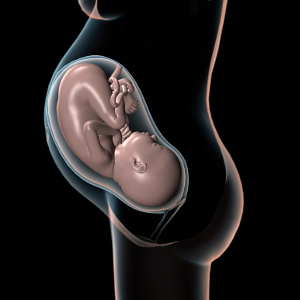 Iodine is involved in the body’s production of thyroid hormones, and we humans need plenty of iodine throughout life, especially during periods such as fetal development and child development. Iodine is also important for brain development and cognitive skills. Severe iodine deficiency during pregnancy and during a child’s first years of life may result in stunted growth and/or mental retardation, but there has been uncertainty about how a minor iodine deficiency affects the child before and after birth. In a review article that is published in Nutrients, the authors look closer at iodine’s role in fertility and child growth. Apparently, iodine deficiencies are quite common, and we even need selenium and other nutrients to secure a well-functioning thyroid gland.
Iodine is involved in the body’s production of thyroid hormones, and we humans need plenty of iodine throughout life, especially during periods such as fetal development and child development. Iodine is also important for brain development and cognitive skills. Severe iodine deficiency during pregnancy and during a child’s first years of life may result in stunted growth and/or mental retardation, but there has been uncertainty about how a minor iodine deficiency affects the child before and after birth. In a review article that is published in Nutrients, the authors look closer at iodine’s role in fertility and child growth. Apparently, iodine deficiencies are quite common, and we even need selenium and other nutrients to secure a well-functioning thyroid gland.







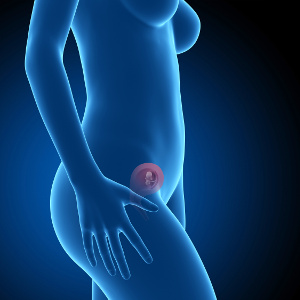 Around one in six pregnancies results in spontaneous abortion. Although there can be different reasons for this, scientists have found that eating a healthy diet with lots of vegetables, fruit, fish, shellfish, eggs, and grains can lower the risk by over 50 percent. This was shown in a meta-analysis from the University of Birmingham in England. Earlier research shows that selenium, a trace element that many people are deficient in, plays a particularly important role.
Around one in six pregnancies results in spontaneous abortion. Although there can be different reasons for this, scientists have found that eating a healthy diet with lots of vegetables, fruit, fish, shellfish, eggs, and grains can lower the risk by over 50 percent. This was shown in a meta-analysis from the University of Birmingham in England. Earlier research shows that selenium, a trace element that many people are deficient in, plays a particularly important role.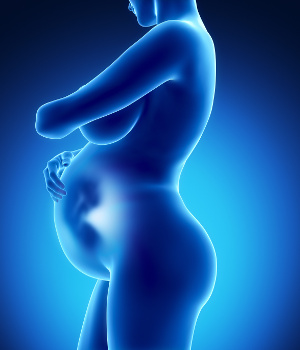 The need for the trace element
The need for the trace element 
 An increasing number of young women risk giving birth to babies with an insufficiently developed mental capacity due to
An increasing number of young women risk giving birth to babies with an insufficiently developed mental capacity due to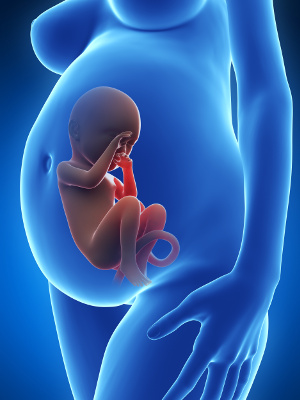 The number of small children affected by asthma and allergy is a growing worldwide problem.
The number of small children affected by asthma and allergy is a growing worldwide problem.  Congenital heart defects are the most common birth defect on a global scale. The condition is associated with a number of different complications and even comes with an increased risk of infant death. Maternal nutritional status is vital for the development of the fetus, and a team of Chinese scientists has looked closer at how
Congenital heart defects are the most common birth defect on a global scale. The condition is associated with a number of different complications and even comes with an increased risk of infant death. Maternal nutritional status is vital for the development of the fetus, and a team of Chinese scientists has looked closer at how 
 Preeclampsia is a precursor of eclampsia, a condition characterized by spasms and seizures that can be life-threatening for the expecting mother and her unborn child. According to a new review article that is published in the science journal Cureus, injections of magnesium sulfate have been tested as part of the treatment for severe preeclampsia and related spasms. This therapy form has also been introduced in Denmark. It is important during pregnancy to get enough
Preeclampsia is a precursor of eclampsia, a condition characterized by spasms and seizures that can be life-threatening for the expecting mother and her unborn child. According to a new review article that is published in the science journal Cureus, injections of magnesium sulfate have been tested as part of the treatment for severe preeclampsia and related spasms. This therapy form has also been introduced in Denmark. It is important during pregnancy to get enough 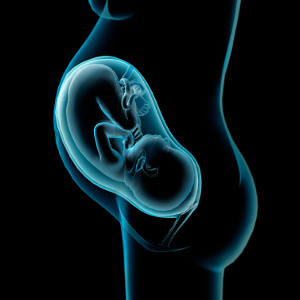 The two omega-3 fatty acids, EPA and DHA, are of vital importance to the development of a baby’s brain and central nervous system during pregnancy and the first years of life. The best sources of these fatty acids are oily fish and fish oil supplements. There is widespread deficiency of these fatty acids, which increases the risk of a lower IQ, ADHD, depression, or other neurological disturbances in the baby, according to a review article published in Nutrients. It is also important for brain health to balance one’s intake of
The two omega-3 fatty acids, EPA and DHA, are of vital importance to the development of a baby’s brain and central nervous system during pregnancy and the first years of life. The best sources of these fatty acids are oily fish and fish oil supplements. There is widespread deficiency of these fatty acids, which increases the risk of a lower IQ, ADHD, depression, or other neurological disturbances in the baby, according to a review article published in Nutrients. It is also important for brain health to balance one’s intake of  Impaired fertility and involuntary childlessness are common in the Nordic countries and there can be a number of reasons for these serious problems. However, according to a large Finnish study that is published in Nutrients,
Impaired fertility and involuntary childlessness are common in the Nordic countries and there can be a number of reasons for these serious problems. However, according to a large Finnish study that is published in Nutrients, 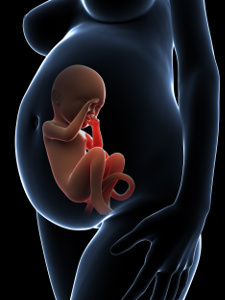 During pregnancy, the unborn child needs different nutrients for proper development of its brain and nervous system. Even if the mother eats a balanced diet, it can be difficult to get enough
During pregnancy, the unborn child needs different nutrients for proper development of its brain and nervous system. Even if the mother eats a balanced diet, it can be difficult to get enough 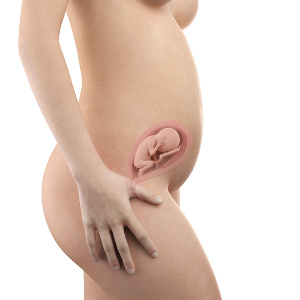
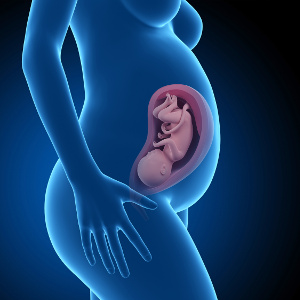
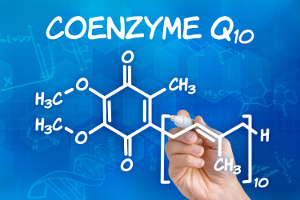

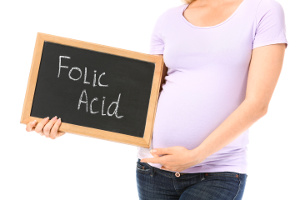
 Fish contains vitamin D, omega-3 fatty acids, selenium, and iodine, all of which are important for the fetus’ brain and development. However, fish also contains mercury and that discourages many pregnant women from eating fish. According to a new study that is published in NeuroToxicology, eating fish during pregnancy is actually not harmful at all, on the contrary, and the scientists behind the study argue that the precautionary guidelines need to be revised. Apparently, the selenium content in fish and seafood determines if mercury is dangerous or not.
Fish contains vitamin D, omega-3 fatty acids, selenium, and iodine, all of which are important for the fetus’ brain and development. However, fish also contains mercury and that discourages many pregnant women from eating fish. According to a new study that is published in NeuroToxicology, eating fish during pregnancy is actually not harmful at all, on the contrary, and the scientists behind the study argue that the precautionary guidelines need to be revised. Apparently, the selenium content in fish and seafood determines if mercury is dangerous or not.
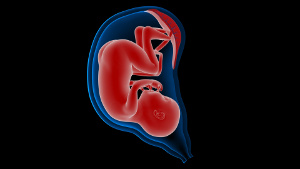

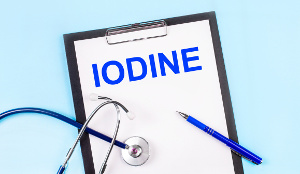 There is a trending global shift towards vegetarian or vegan diets. However, these diets come with a risk of lacking essential nutrients that are primarily found in animal food sources. According to a large meta-analysis of Western diets, one of them is
There is a trending global shift towards vegetarian or vegan diets. However, these diets come with a risk of lacking essential nutrients that are primarily found in animal food sources. According to a large meta-analysis of Western diets, one of them is 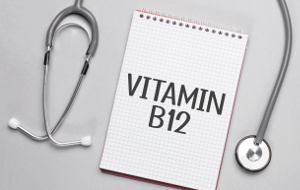
 Babies and small children are less likely to develop croup if their mothers have taken high-dosed
Babies and small children are less likely to develop croup if their mothers have taken high-dosed 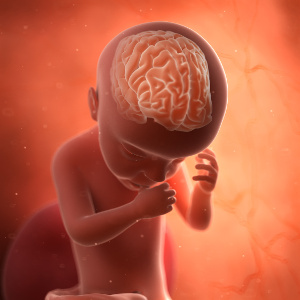 During pregnancy,
During pregnancy, 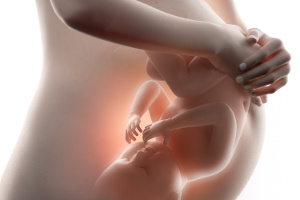 During a woman’s pregnancy,
During a woman’s pregnancy,  Atopic dermatitis (eczema) is a widespread problem and a huge burden to both the child and its parents. According to a new study that is published in British Journal of Dermatology, high-dosed
Atopic dermatitis (eczema) is a widespread problem and a huge burden to both the child and its parents. According to a new study that is published in British Journal of Dermatology, high-dosed 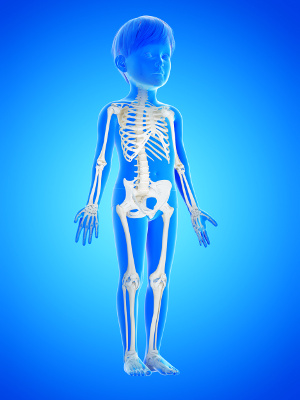
 Around one billion people worldwide are believed to lack
Around one billion people worldwide are believed to lack 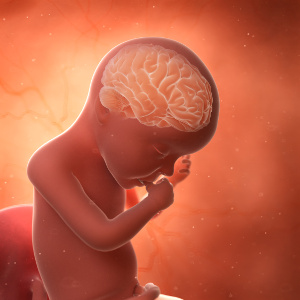
 "After about one week of taking the Q10 supplement I could feel a huge difference," says 23-year old Alan Piccini, who has been suffering from extreme fatigue and muscle aches ever since he was a child.
"After about one week of taking the Q10 supplement I could feel a huge difference," says 23-year old Alan Piccini, who has been suffering from extreme fatigue and muscle aches ever since he was a child. “Taking capsules with co-enzyme Q10 has freed me of the severe side effects of my cholesterol lowering medicine,” Mrs Franken explains.
“Taking capsules with co-enzyme Q10 has freed me of the severe side effects of my cholesterol lowering medicine,” Mrs Franken explains.